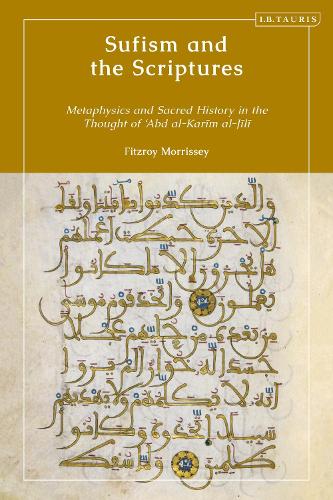
Sufism and the Scriptures: Metaphysics and Sacred History in the Thought of 'Abd al-Karim al-Jili
(Hardback)
Available Formats
Publishing Details
Sufism and the Scriptures: Metaphysics and Sacred History in the Thought of 'Abd al-Karim al-Jili
By (Author) Fitzroy Morrissey
Bloomsbury Publishing PLC
I.B. Tauris
24th December 2020
United Kingdom
Classifications
Tertiary Education
Non Fiction
Mysticism
Social groups: religious groups and communities
Middle Eastern history
297.4
Physical Properties
Hardback
256
Width 156mm, Height 234mm
531g
Description
The Sufi thinker Abd al-Karim al-Jili (d. 1408) is best-known for his treatment of the idea of the Perfect Human, yet his masterpiece, al-Insan al-kamil (The Perfect Human), is in fact a wide-ranging compendium of Sufi metaphysical thought in the Ibn Arabian tradition. One of the major topics treated in that work is sacred history, the story of Gods revelation of the truth to humanity through His prophets and scriptures. Fitzroy Morrissey provides here the first in-depth study of this important section of al-Jilis major work and the key ideas contained within it. Through a translation and analysis of the key passages on the Quran, Torah, Psalms and Gospel, it shows how al-Jilis view of sacred history is conditioned by his Ibn Arabian Sufi metaphysics, whereby the phenomenal world is viewed as a manifestation of God, and the prophets and scriptures as special places where the divine attributes appear more completely. It also looks at how this idea influences al-Jilis understanding of the hierarchy of prophets, scriptures and religions. The book argues that, contrary to common assumptions, al-Jilis Sufi metaphysical view of sacred history is in keeping with the common medieval Muslim view of sacred history, whereby the Quran is viewed as the best of scriptures, Muhammad as the best of prophets, and Islam as the best religion. The book therefore not only gives an insight into a key text within medieval Sufi thought, but also has ramifications for our understanding of medieval Sufi views on the relationship between Islam and other religions.
Author Bio
Fitzroy Morrissey is a Fellow of All Souls College, University of Oxford, UK. He received his PhD at the University of Oxford in 2018.
